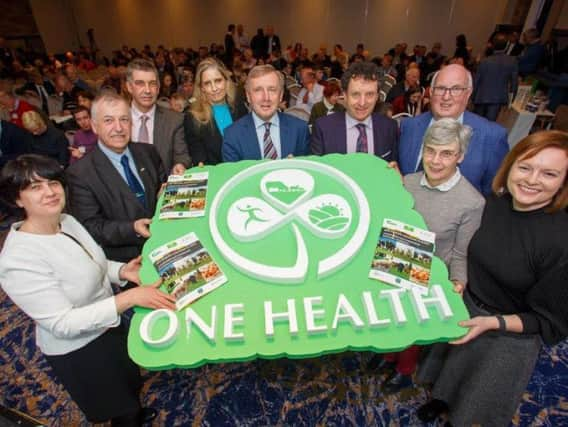'Prevention is better than cure when it comes to animal health', conference hears


A major scientific conference to address this issue, ONE HEALTH - Awareness to Action, Antimicrobial and Anthelmintic Resistance Conference, took place in Tullamore this week.
The event was organised jointly by Teagasc, the Department of Agriculture, Food and the Marine (DAFM), University College Dublin (UCD), Animal Health Ireland (AHI) and the Food Safety Authority of Ireland (FSAI).
Advertisement
Advertisement
The message from the One Health conference was clear: the more antibiotics we use, the more resistant bacteria that will emerge. Reducing antibiotics use in the animal health sector is critical to addressing Antimicrobial Resistance (AMR).
Michael Creed TD, Minister for Agriculture, Food and the Marine, stressed that “there will not be effective bacterial and parasitic diseases treatment options in the future if we continue to use antibiotics and anthelmintics at the level which they are being used currently”.
He stressed that “prevention is better than cure” when it comes to animal health. He said his department’s policy is to promote a strategy where there is a focus on being proactive rather than reactive when it comes to optimising animal health.
Teagasc director, Professor Gerry Boyle said: “We have a responsibility to play our part to preserve the effectiveness of antibiotics for future generations. The agri-food sector, both in Ireland and internationally, has a significant role to play to safeguard the use of antibiotics for society.”
Advertisement
Advertisement
The first step should be to reduce antibiotic usage in animal production systems.
Achieving high standards of animal health, will not only benefit primary producers from a productivity perspective, but will reduce our use of antibiotics to treat sick and ill animals, thus reducing the risk of developing antimicrobial resistance.
The overuse of antimicrobials, whether in human or veterinary medicine, is a key driver in the emergence of antimicrobial resistance.
AMR could reverse the benefits achieved in animal health care and in human health care over the last 100 years. It’s now time to move from awareness to action to meet these new challenges.
The proceedings from the One Health conference are available at https://www.teagasc.ie/publications/2019/one-health-awareness-to-action---antimicrobial-and-anthelmintic-resistance-conference.php